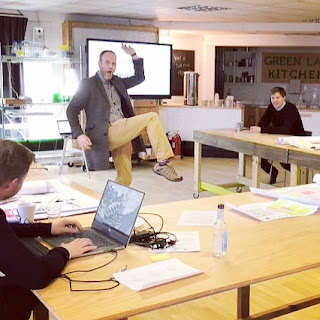In 2018 I made a deliberate choice to try and move to a 'digital by default' model for how I delivered all my work - which meant that when the lockdowns that defined 2020 came, I had something of a head start (which may be why so many bodies sought my support in helping them move all their delivery models to a similar on-line format).
And there were several reasons for this choice I made several years ago:
- it helped my desire to try to better manage / reduce my environmental impact, by reducing the amount of travel I needed to do (and although I've always prioritised public transport where possible for business travel, even trains and buses create pollution of sorts).
- it meant I could increase my productivity by not having to factor in travel time to/from clients (and not needing to find ways to cover that time - after all, I'm not salaried), meaning that I'd be able to offer better 'value for money' to clients.
- reducing the need for travel means I can be at home more, which means I can do more to support my family around their circumstances and needs.
All of which seemed eminently sensible when I committed to trying to work this way, but then the pandemic was upon us, and things have shifted, which now leaves me in a dilemma.
As part of their recovering their lives (and sanity) from the disruption and upheaval that Covid has wrought, most people seem to be desperate to meet in person again (almost to the point of fetishing the need to meet and undertake activities IRL).
But my business model that developed to deliver virtually seems to be working very well in a digital format:
- most people have found that they prefer to engage with learning and workshops I deliver on line, to the point that they don't want to go back to an in person physical classroom model when given the option;
- every Board and senior management team I've supported with facilitated planning of various types over 2020 and early 2021 are now committed to using an on-line format in the future, having experienced how well it can work for them with me;
- and in the year before the lockdowns, 3/4 of all my client activity was delivered virtually (a figure that was up over 20% on the previous year).
But the lockdowns have also exposed that more people than we might have hoped are still struggling with on-line access through no fault of their own... (see here)
Some my dilemma - do I remain true to my values and the commitments I made in my business model 3 years ago and continue avoiding doing things IRL wherever I can, or do throw my lot in with others and be part of helping them recover what they feel they've lost by agreeing to start to spend more time away from home and family, and need to increase my charges to cover travel costs and time?
Answers on a postcard / or over a pint in the pub (but only if we've going to be near one together at the same time).





